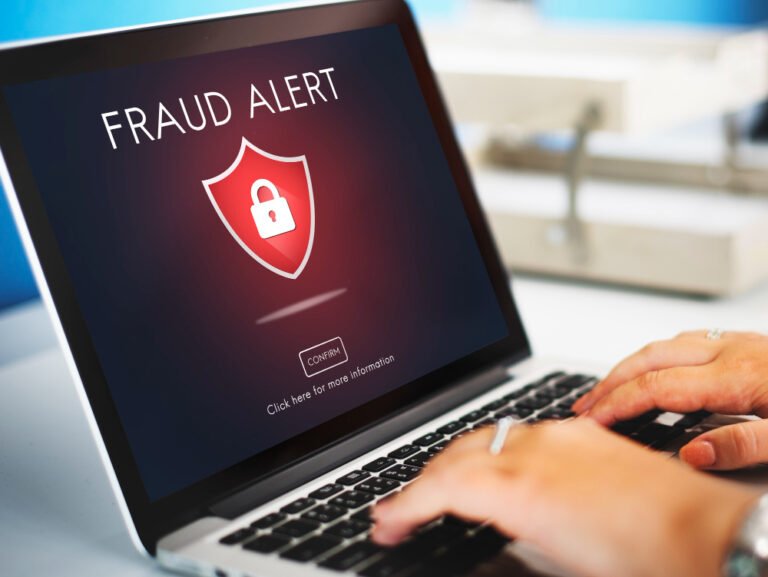Being scammed can feel overwhelming and stressful. But acting fast can help limit the damage, recover what’s possible, and protect yourself from further harm. This guide walks you through clear, practical steps to take if you think you’ve been scammed, whether by phone, online, email, or text.
What Should Be Your Next Step If You Think You Have Been Scammed?

Stop Contact and Secure Your Information
The first and most important step is to stop all communication with the scammer. Do not respond to texts, calls, or emails. Scammers often try to manipulate or pressure you into sending more money or personal details.
Immediately change the passwords for your:
- Email accounts
- Banking and financial apps
- Social media profiles
- Any accounts the scammer may have accessed
Use strong, unique passwords and enable two-factor authentication where available.
Gather Evidence and Document the Scam
- Save all emails, text messages, and any other communication you’ve had with the scammer. This information is crucial for reporting the scam and may aid in investigations.
- Keep detailed records of any financial transactions related to the scam, including bank statements, receipts, and any communication regarding the transfer of money. This documentation will be essential when reporting the incident to your bank or law enforcement.
- Write down all relevant details about the scam, including the dates and times of contact, the nature of the fraud, and the methods used by the scammer. This comprehensive record helps authorities understand the scam’s specifics and identify patterns in the scammer’s behavior.
Report the Scam
- Inform your bank or credit card provider immediately about the scam. They can assist in stopping any pending transactions, reversing unauthorized charges, and securing your accounts against further unauthorized access.
- In the UK, report the scam to Action Fraud, the national reporting center for fraud and cybercrime. You can do this online via their website (www.actionfraud.police.uk) or by calling 0300 123 2040. Action Fraud will provide a crime reference number and may share your report with other relevant authorities.
- If the scam involves significant financial loss or you feel personally threatened, contact your local police. Provide them with all the details and documentation you have collected for further processing.
- Notify credit reference agencies such as Experian, Equifax, and TransUnion about the scam. They can monitor your credit report for unusual activity and help prevent identity theft.
Monitor Your Financial Accounts
- Frequently review your bank and credit card statements for any unauthorized transactions from scammers. Early detection can help mitigate further losses.
- Many banks offer alert services that notify you of suspicious activities or transactions above a specified amount. Set these up to stay informed about your account activity in real-time.
- Regularly obtain and review your credit report from the major credit reference agencies. Look for any unfamiliar accounts or credit inquiries that could indicate identity theft.
Block Scam Calls and Texts
To avoid scam calls on your landline or mobile:
- Register with the Telephone Preference Service (TPS) to reduce unwanted sales calls: www.tpsonline.org.uk.
- Use smartphones or landlines with call-blocking features.
- Install apps like Truecaller or Hiya to block known scam numbers.
- Teach vulnerable family members, especially seniors, how to handle suspicious calls by politely declining and hanging up.
Report persistent scam calls and texts to Ofcom, Action Fraud, and your phone provider.
Where to Get Help in the UK
Several organizations can help you recover from scams and offer support:
- Action Fraud – Report fraud and cybercrime.
- NCSC – For cyber-related scams and phishing.
- Citizens Advice – For free legal and scam support.
- Financial Conduct Authority (FCA) – For investment scams and financial services fraud.
- Ofcom – For scam calls, texts, and communication-related issues.
How to Avoid Scam Calls at Home
To minimize the risk of falling victim to scam calls like 02045996870, implement these strategies:
- A free service that allows individuals to opt out of unsolicited sales and marketing calls can be as essential to productivity as using a timesheet template to manage work hours efficiently.
- You can register your phone number on the TPS website (www.tpsonline.org.uk) or by calling 0345 070 0707. Registration typically takes 28 days to become fully effective.
- Many landline phones now come with built-in call-blocking features, which can automatically block known scam numbers such as 02045996874.
- Additionally, there are numerous smartphone apps available that provide similar functionality.
- Many phone providers offer call-blocking services as part of their plans. Contact your provider to see what options are available and how to activate them.
- Avoid answering calls from unknown or withheld numbers. If the call is important, the caller will probably leave a voicemail.
- If you do answer and the caller requests personal information, do not provide it. Hang up and verify the caller’s identity independently, such as by looking up their official contact information.
- Ensure all family members, especially the elderly, are aware of common phone scams and know how to respond to suspicious calls.
- Provide them with a script to refuse to give out personal information over the phone politely. For example, “I’m not comfortable providing that information over the phone. Can you send me a letter instead?”
- Report any scam calls to Action Fraud to help authorities track and combat scam activities.
- Inform your phone provider about the scam calls. They may be able to block the numbers or provide additional advice on how to handle such calls.
By following these detailed steps and leveraging the resources available through various UK organizations, you can effectively manage the situation if you have been scammed and take proactive measures to protect yourself from future scams. Stay vigilant and informed to safeguard against fraudulent activities.



